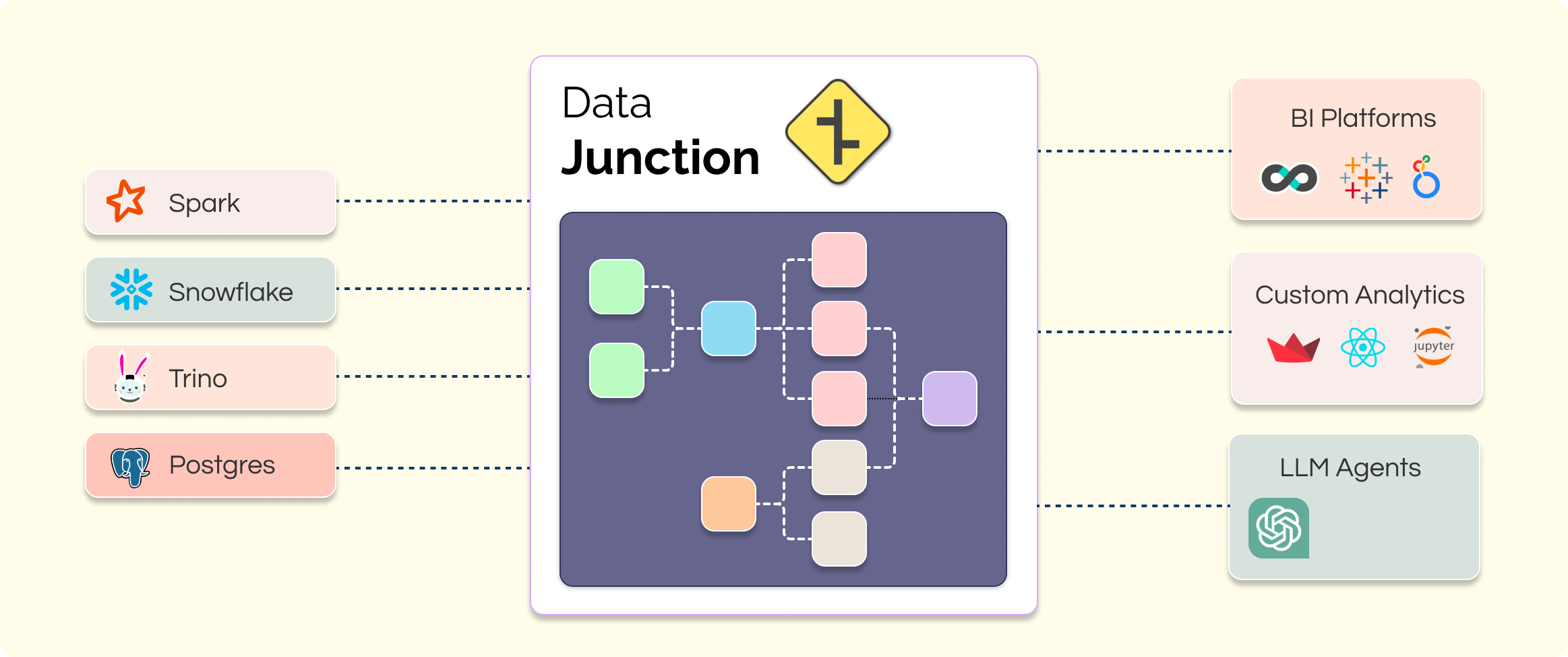DataJunction (DJ) is an open source metrics platform that allows users to define metrics and the data models behind them using SQL, serving as a semantic layer on top of a physical data warehouse. By leveraging this metadata, DJ can enable efficient retrieval of metrics data across different dimensions and filters.
To launch the DataJunction UI with a minimal DataJunction backend, start the default docker compose environment.
docker compose upIf you'd like to launch the full suite of services, including open-source implementations of the DataJunction query service and
DataJunction reflection service specifications, use the demo profile.
docker compose --profile demo upDJUI: http://localhost:3000/
DJ Swagger Docs: http://localhost:8000/docs
DJQS Swagger Docs: http://localhost:8001/docs
Jaeger UI: http://localhost:16686/search
Jupyter Lab: http://localhost:8181
At its core, DJ stores metrics and their upstream abstractions as interconnected nodes. These nodes can represent a variety of elements, such as tables in a data warehouse (source nodes), SQL transformation logic (transform nodes), dimensions logic, metrics logic, and even selections of metrics, dimensions, and filters (cube nodes).
By parsing each node's SQL into an AST and through dimensional links between columns, DJ can infer a graph of dependencies between nodes, which allows it to find the appropriate join paths between nodes to generate queries for metrics.
To get involved, feel free to join the DataJunction open-source community sync that's held ever two weeks--all are welcome! For an invite to the sync, simply join the datajunction-community google group.
